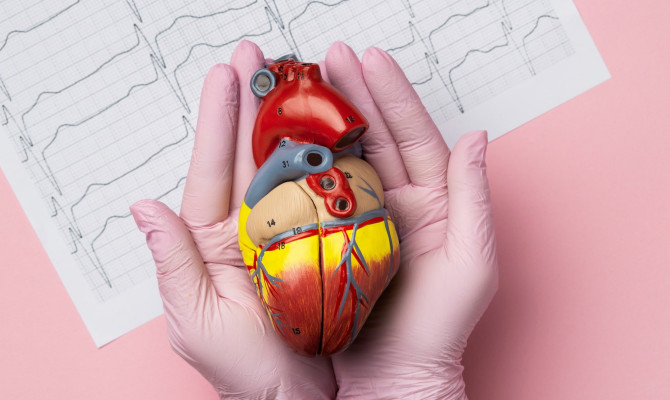Pancreatic Cancer: Causes, Symptoms & Treatment

- Pancreatic Cancer
- 20 Oct 2023
Introduction
Pancreatic Cancer
A type of cancer known as pancreatic cancer begins as an increase of pancreatic cells. The pancreas is an endocrine gland (ductless gland that produces hormones directly into the blood) located behind the lower portion of the stomach. It generates digestive enzymes and hormones that regulate blood sugar levels.

The cells that line the ducts that release the pancreas’ digestive enzymes are where pancreatic ductal adenocarcinoma, the most frequent type of pancreatic cancer, starts. Rarely is pancreatic cancer found in the earlier stages, when it has the best chance of being treated. This is due to the fact that it frequently does not manifest symptoms until after it has progressed to other organs. 1 Introduction | Researched based study from Mayo Clinic
Causes
What Causes Pancreatic Cancer?
Pancreatic cancer has an unclear exact cause. However, some risk factors have been noted by professionals which include the following:
- Smoking cigars, cigarettes, and other tobacco products
- Obesity
- Type 2 diabetes
- Exposure to particular chemicals, such as petrochemicals and insecticides
- Chronic pancreatitis (A persistent pancreatic inflammation)
- Biological parent to child transmission of gene alterations (mutations) that cause hereditary chronic pancreatitis.
- Genetic changes (mutations), such as those in the BRCA1 or BRCA2 genes, which are inherited from one biological parent to the next. 2 Causes| Researched based study from Cleveland Clinic
Symptoms
Pancreatic Cancer Symptoms
Pancreatic cancer frequently doesn’t show any symptoms until the condition has advanced. Signs and symptoms of an advanced pancreatic cancer includes the following:
- Abdominal pain that spreads to the sides/back
- Loss of appetite
- Loss of weight
- Yellowing of the skin and the whites of the eyes (jaundice)
- Light colored or floating stools
- Urine with a dark hue
- Itching
- Newly diagnosed diabetes or diabetes that is more difficult to manage.
- A blood clot that results in pain and edema in the arm or leg
- Weakness or fatigue. 1 Symptoms | Researched based study from Mayo Clinic
Types
Types of Pancreatic Cancer
Pancreatic tumors can be of two major types:
- Exocrine tumors
- Neuroendocrine tumors (NET)
Exocrine tumors
- Exocrine tumors make for more than 90% of all pancreatic tumors. 2 Types| Researched based study from Cleveland Clinic
- Cells that line your internal organs give rise to adenocarcinoma, the most prevalent kind of pancreatic cancer.
Neuroendocrine tumors (NET)
- Neuroendocrine tumors (NETs) make for less than 10% of pancreatic tumors which is a rare type of cancer that starts as a growth of cells in the pancreas. 2 Types| Researched based study from Cleveland Clinic
Diagnosis
How is Pancreatic Cancer Detected?
It could be difficult to find pancreatic cancer early. This is because normal imaging tests make it difficult to see these tumors and because doctors can’t feel your pancreas during routine exams.
Your doctor will advise a series of pancreas function tests if they suspect pancreatic cancer, which may include the following:
- Imaging tests
- Blood tests
- Laparoscopy staging
- Genetic testing
Imaging tests:
One or more imaging tests from the list below may be recommended by your doctor which includes:
- Computed tomography (CT) scans
- Magnetic resonance (MR) imaging
- Positron Emission (PE)Tomography
- Endoscopic ultrasound
Blood tests:
- A blood test for the pancreas can find tumor markers. A chemical known as a tumor marker is one that reveals the existence of cancer in an individual.
- People with pancreatic cancer who have high blood levels of carbohydrate antigen (CA) 19-9, a type of protein produced by pancreatic cancer cells, are more likely to have an aggressive form of the disease.
Laparoscopy staging:
- Laparoscopy is occasionally used by medical professionals to assess the severity of pancreatic cancer and whether it can be removed.
- An abdominal incision is made a few times during this treatment, and a lengthy tube with a camera is then inserted.
- They can use this to look for anomalies inside your abdomen. Frequently, a biopsy will be performed concurrently.
Genetic testing:
- Consider genetic testing if pancreatic cancer is diagnosed in you. This can reveal whether your pancreatic cancer was caused by an inherited condition.
- Additionally, it might assist your doctor in choosing the course of treatment that will benefit you the greatest.
- Consider genetic testing if you are a first-degree family (parent, child, or sibling) of someone who has pancreatic cancer. 2 Diagnosis| Researched based study from Cleveland Clinic , 3 Diagnosis| Researched based study from National Institutes of Health , 4 Diagnosis| Researched based study from National Institutes of Health
Signs that pancreatic cancer has spread:
Doctors will probably order additional tests after a pancreatic cancer diagnosis to see if the disease has spread. These could consist of blood tests or imaging exams like a PET scan.
The outcomes of these tests will be used to determine the cancer’s stages which includes the following:
- Stage 0: The pancreas contains aberrant cells that may develop into cancer. Precancer is another name for this stage.
- Stage 1: The pancreas is the only location of the tumor which has not spread to neighboring parts.
- Stage 2: Tumor from pancreas spreads to the lymph nodes or surrounding abdominal tissues.
- Stage 3: The cancer from Pancreas spread to the lymph nodes and other major blood arteries.
- Stage 4: The cancer metastasis from Pancreas to the liver has been affected by the tumor’s spread. 3 Diagnosis| Researched based study from National Institutes of Health , 4 Diagnosis| Researched based study from National Institutes of Health
Treatment
What Pancreatic Cancer Treatments are Available?
Depending on the tumor’s stage and location, treatment for pancreatic cancer is recommended. Your medical staff takes into account your general health and recommends the most appropriate treatment depending on the severity of the condition.
Getting rid of the cancer is typically the initial step in treating pancreatic cancer. If it can’t be achieved, the focus may shift to improving quality of life and halting the progression of the cancer or the patient’s continued suffering.
Pancreatic cancer can be treated with surgery to remove the afflicted organ, radiation therapy, chemotherapy, or a combination of these. These therapies probably won’t help if the cancer is advanced. Therefore, the goal of treatment is to minimize your discomfort while extending your level of comfort.
Surgery
- Although surgery can treat pancreatic cancer, not everyone is a candidate for it. Treatment for cancer that hasn’t progressed to other organs may involve it.
- If the cancer spreads or becomes too large, surgery may not be an option. In these situations, the first line of treatment may consist of chemotherapy.
- After these additional therapies, surgery may occasionally be performed.
Chemotherapy
- By using strong drugs, chemotherapy eliminates cancer cells. One chemotherapy drug may be used during treatment, or a combination of them.
- The bulk of chemotherapy drugs are administered intravenously, while some of them must be taken orally.
- When surgery cannot be the first treatment, chemotherapy may be utilized instead. Additionally, chemotherapy may be administered along with radiation therapy.
- Sometimes the cancer is sufficiently reduced by this therapy regimen to enable surgery.
- This course of therapy is provided at specialized hospitals by a team of professionals who are experienced in treating patients with pancreatic cancer.
- Following surgery, chemotherapy is frequently administered to get rid of any cancer cells that could have survived.
- Chemotherapy can help control cancer when it has spread to other body parts and is advanced. Chemotherapy may also be able to reduce some symptoms, such as pain.
Radiation/Radio therapy
- To eliminate cancer cells, radiation therapy employs powerful energy beams. Protons, X-rays, and other types of energy are possible sources.
- During radiation therapy, a machine circles around you as you lay back on a table. The equipment directs radiation to particular parts of your body.
- Radiation can be applied prior to or following surgery. Oftentimes, it follows chemotherapy. Additionally, radiation and chemotherapy can be combined.
- Chemotherapy and radiation therapy are two initial treatment options if surgery is not a possibility.
- This therapy regimen may reduce the cancer’s size and enable surgery. Radiation therapy can aid in the relief of symptoms like pain when the cancer has spread to other body areas.
Immunotherapy
- Immunotherapy is a medical procedure that aids in the body’s immune system’s ability to eradicate cancer cells.
- By targeting germs and other cells that shouldn’t be in the body, the immune system fends against infections.
- Cancer cells alter the immune system to help them survive. Immune system cells are assisted in locating and eliminating cancer cells via immunotherapy.
- If your pancreatic cancer possesses specific DNA abnormalities that increase the likelihood that it will respond to these treatments, immunotherapy might be a possibility. 1 Treatment | Researched based study from Mayo Clinic
Is pancreatic cancer very curable?
- Even though pancreatic cancer has a terrible survival rate, early detection and treatment can result in a full remission.
- Total surgical excision of the tumor is the only curative method for pancreatic cancer. 2 Treatment| Researched based study from Cleveland Clinic
Complications
Possible Side Effects of Pancreatic Surgery may include:
- Delayed stomach emptying
- Pancreatic fistulas
- Anastomotic leaks
- Infection
- Bleeding 3 Complications| Researched based study from National Institutes of Health
Prognosis
Prognosis for Pancreatic Cancer
- Despite advancements in cancer therapy, the prognosis for pancreatic adenocarcinoma is still poor.
- About 20% of people survive five years. 90% of patients still die at 1 year following diagnosis, despite surgery, which is a poor prognosis. However, palliative surgery has its advantages in few patients. 3 Prognosis| Researched based study from National Institutes of Health
Takeaway
Pancreatic Cancer: Seek Medical Advice
A pancreatic cancer diagnosis can be unexpected and drastically alter one’s life. If you experience any symptoms that you think might be related to pancreatic cancer, especially if you’re at higher risk for the condition, seek medical advice as soon as you can. Despite the fact that many illnesses might present with the same symptoms, pancreatic cancer responds best to treatment when discovered in its earliest stages. 1 Takeaway| Researched based study from Mayo Clinic , 2 Takeaway| Researched based study from Cleveland Clinic
Any feedback on this article?
 This Articles content was accurate
This Articles content was accurate Very Informative Article
Very Informative Article I have a question or a comment
I have a question or a comment
 This article contains inaccurate content
This article contains inaccurate content This article was not helpful
This article was not helpful I have a question or a comment
I have a question or a comment
We appreciate your helpful feedback!
Checkout our social pages
References
-
Mayo Clinic
Introduction | Symptoms | Treatment | Takeaway
-
Cleveland Clinic
Causes | Types | Diagnosis | Treatment | Takeaway
-
National Institutes of Health
Diagnosis | Complications | Prognosis
-
National Institutes of Health
Diagnosis






































